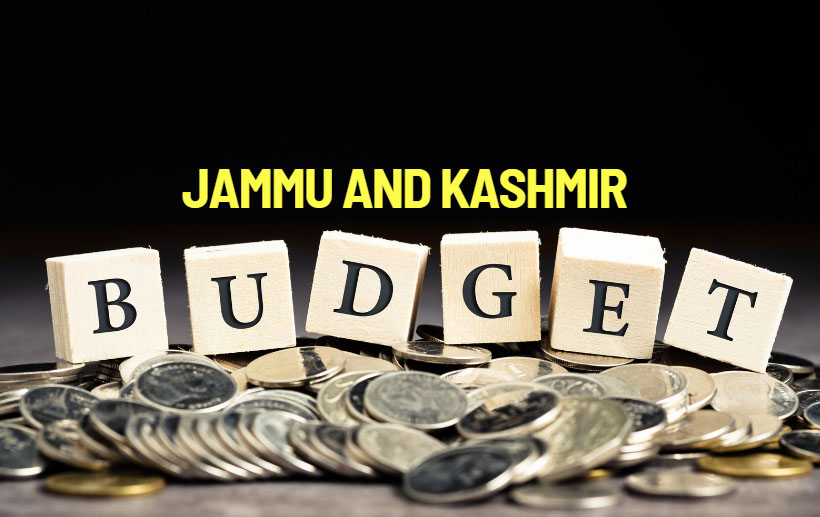New Delhi, Feb 1: In the Union Budget for 2025-26, the Centre has set aside Rs 41,000.07 crore for Jammu and Kashmir, which is nearly equivalent to the revised estimate for the fiscal year 2024-25.
Additionally, the Jammu and Kashmir Police, which has been under the direct oversight of the Union Home Ministry since the abrogation of Article 370 and the restructuring of the former state, is allocated Rs 9,325.73 crore, an increase from Rs 8,665.94 crore in the previous fiscal.
In the budget unveiled by Union Finance Minister Nirmala Sitharaman in the Lok Sabha on Saturday, Rs 40,619.30 crore has been earmarked as central assistance to address the resource gap in Jammu and Kashmir.
The budget also includes Rs 279 crore designated as grants for the Union Territory Disaster Response Fund and Rs 101.77 crore to support capital expenditure.
Originally, the Centre had allocated Rs 42,277.74 crore to Jammu and Kashmir for the 2024-25 fiscal, which was later adjusted to Rs 41,000.07 crore. For the fiscal year 2023-24, the allocation was Rs 41,751.44 crore.
The funding for the Jammu and Kashmir Police for the upcoming fiscal of 2025-26 is Rs 659.79 crore more than the previous year.
The Union Home Ministry clarified that this fund is aimed at covering administrative expenses.
The Jammu and Kashmir Police is entrusted with maintaining law and order and managing traffic in the Union Territory.
Lieutenant Governor Manoj Sinha described the budget as “pragmatic,” stating it reflects India’s ambitions for accelerated growth and stimulation of the private sector.
However, the Congress’ Jammu and Kashmir unit, along with senior CPI(M) leader MY Tarigami, deemed the budget allocation “disappointing.”
“I sincerely thank (Union) Finance Minister Nirmala Sitharaman for presenting a pragmatic budget for ‘Viksit Bharat’. I am grateful to Prime Minister Narendra Modi for putting the economy on a fast track and for undertaking bold development initiatives for the poor, youth, farmers, and women,” the lieutenant governor expressed on a post on X.
When referring to the Income Tax exemption up to Rs 12 lakh under the new regime, Sinha noted it as a significant boost to the middle class.
“The revised tax structure represents a historic step aimed at transforming the lives of the middle class. The Prime Minister has also offered substantial relief to taxpayers by increasing the TDS limit on rent, improving social security, and formalizing the gig economy,” Sinha commented.
“The emphasis on agricultural growth with various initiatives, including the agri district programme, aims to actualize the vision of rural prosperity and social equity,” he added.
India remains the fastest-growing major economy, and this budget is expected to enhance the infrastructure sector, micro, small, and medium enterprises (MSMEs), the energy sector, innovation, job creation, and promote transformative reforms in key areas for more inclusive and sustainable growth, he further stated.
In response to the budget, Kulgam MLA Tarigami characterized it as “highly disappointing” with regard to Jammu and Kashmir.
“Rather than increasing support for Jammu and Kashmir, the Centre has reduced the allocation from the actual budget of 2024-25, disregarding high inflation, rising unemployment, struggling businesses, and other critical livelihood sectors,” he expressed.
“The purchasing power among the people, including the so-called middle class, has significantly declined in Jammu and Kashmir over the years,” he added.
Tarigami suggested that the central government should have acknowledged the current situation and provided some relief to the residents of Jammu and Kashmir. “It appears they are punishing the people of Jammu and Kashmir for the outcome of the 2024 assembly elections, which was not in their favor.”
The Jammu and Kashmir Pradesh Congress Committee also sharply criticized the budget, stating it neglected the region, particularly regarding the special focus needed to assist the “most suffering” individuals, especially unemployed youth.
“The budget seems to cater more to Bihar and Delhi for political intentions in light of the assembly elections,” remarked the Congress’ Jammu and Kashmir chief, Tariq Hameed Karra.
Jammu and Kashmir is facing severe unemployment, the second highest in the country, while many young individuals are awaiting regularization despite working for minimal wages, he highlighted.
“Apart from a long-overdue minor relief for the salaried class in Income Tax brackets, there is no significant support for the middle class and the poor, who are struggling with unprecedented price hikes on essential goods,” he concluded.


Leave a Reply